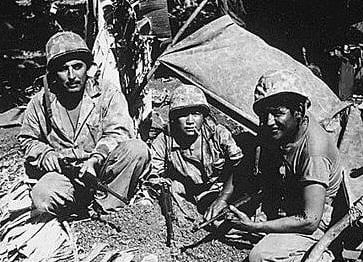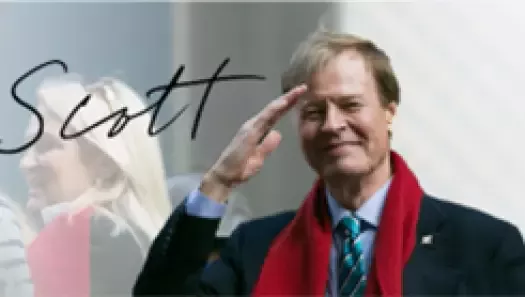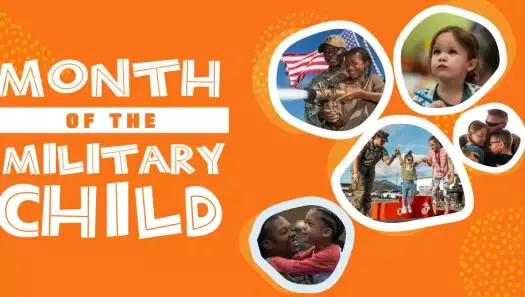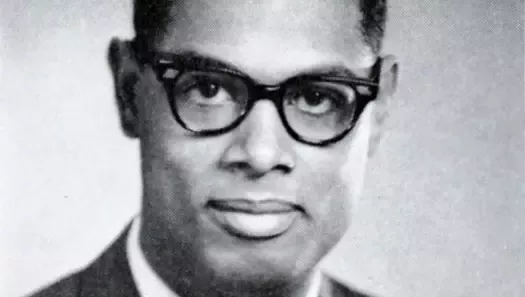Military & Veterans Life
Cover Story: With the Death of John Kinsel Sr., Only Two Navajo Code Talkers of World War II Are Still Alive

Caption: World War II veterans, the Navajo Code Talkers, relax before traveling up New York City’s famed 5th Avenue in the United States’s largest Veterans Day Parade, Nov 11, 2009.
John Kinsel Sr., one of last remaining Navajo Code Talkers from World War II, passed away peacefully on October 19, 2024 at the age of 107. His life embodied the importance of the Navajo Code Talkers in U.S. military history. They transmitted messages during World War II based on the tribe's native Diné bizaad language in a code that Japanese cryptologists were unable to break.
Following Kinsel's death, only two original Navajo Code Talkers are still alive: Former Navajo Chairman Peter MacDonald (who celebrates his 96th birthday in December) and Thomas H. Begay.
"Mr. Kinsel was a Marine who bravely and selflessly fought for all of us in the most terrifying circumstances with the greatest responsibility as a Navajo Code Talker," Tribal President Buu Nygren said in a statement. “He was not just a hero; he was a pillar of our community and a testament to the strength of our people. His contributions during the war and his dedication to his family and culture will always be remembered. I am saddened to hear of the news of his passing.”
It was civil engineer Philip Johnston’s idea to use the Navajo language during World War II. He had spent time on the Navajo reservation as the son of a missionary. He was one of the few non-Navajos who spoke their language fluently. More than 400 Navajo code talkers were trained in 1942-45 to take part in Marine operations in the Pacific Theater to transmit messages based on their then-unwritten native language. The code was so successful that it wasn’t declassified until 1968. The language’s syntax and tonal qualities, not to mention dialects, make it unintelligible to anyone without extensive exposure and training.
According to the Navajo Times, Kinsel was born in 1917 in Cove, Arizona, and his early life was marked by hardship. His father died when he was a baby and his younger brother died at 6 years old. He attended Fort Defiance Boarding School at 6. Arriving without knowledge of English, Kinsel was given the name John Williams but later reclaimed his grandfather’s surname, Harvey. Shortly after his departure, the school was transformed into a trachoma hospital, reflecting the grim realities faced by many Native American children in boarding schools. His community Lukachukai was his lifelong home after service.

(U.S. Navy Photo)
He enlisted in 1942 and served with the 9th Marine Regiment and the 3rd Marine Division during the Battle of Iwo Jima. He received an envelope upon graduating that said he should report at a Code Talker. He knew nothing about the job at the time.
When asked in the Library of Congress’ Veteran History Project interview what a typical message was about, he spoke about “jump off" times of when the front lines would move. He mentioned the word “rabbit trail” was code for “route.”
“These are all creative words. You find a puppy dog and you give him a name. That’s how we learn it. When they give it a name, you memorize it. Now I forget those words. It’s been a long time. But what happened at that time, it’s like it happened yesterday.”
President Ronald Reagan established Navajo Code Talkers Day in 1982 and the Aug. 14 holiday honors all the tribes associated with the war effort. Twelve years later, Kinsel received the Congressional Silver Medal for his service as a Navajo Code Talker.
More about the Navajo Code Talkers
About 400 Navajo men transmitted secret communications on the battlefields of WWII. At a time when America's best cryptographers were running into difficulties, these Native Americans were making history. They drew upon their proud warrior tradition to brave the dense jungles of Guadalcanal and the exposed beachheads of Iwo Jima to transmit vital communications for the Allied forces. The Navajo Code Talkers' history is both fascinating and impressive. These "Code Talkers" were required to commit over 600 battlefield terms to memory, and they served with distinction in the major engagements of the Pacific theater from 1942-1945.
Learn more about the Navajo Code Talkers when we recognized all of them with HeroVet status in 2009.



